Iran’s Review Of US Response Will Last Until September 2
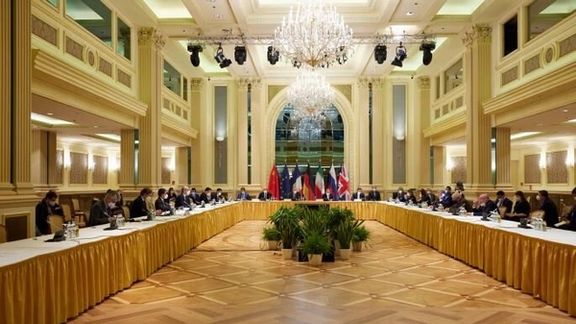
Iran’s review of the US response regarding the possible revival of the 2015 nuclear deal will continue until Friday, while hardliners have called on Tehran not to accept the agreement.

Iran’s review of the US response regarding the possible revival of the 2015 nuclear deal will continue until Friday, while hardliners have called on Tehran not to accept the agreement.
In a tweet on Sunday, Nour News, a website affiliated with the secretary of Iran's Supreme National Security Council (SNSC), Ali Shamkhani, said that “the precise examination of US's responses to Iran's modified pivots regarding the proposal of the European Union coordinator, is still ongoing at expert levels, and this process will continue at least until the end of this week.”
The Iranian week ends on Friday, September 2.
Meanwhile, Iran's hardline Kayhan Daily, affiliated with Supreme Leader Ali Khamenei’s office, has called on the government to leave the negotiations and proceed without reviving the landmark accord.
“The path taken in these years has proven that with negotiations [Iran] cannot remove the sanctions, and with more negotiations only the scope of [other side’s] the demands will become wider,” the newspaper said.
The article noted that the capabilities of the Iranian government and the regional and global developments have provided the administration of Ebrahim Raisi with a good opportunity to correct the deviated path of the nuclear talks.
Removal of sanctions through negotiations is a bait that the US foreign policy officials have set on the hook, and the government can forget this bait and spend all its focus and energy on neutralizing the effects of the sanctions as it has been doing during the past year, the daily underlined.
Unconfirmed parts of the US response to Iran have been leaked in Tehran, showing Washington’s rejection of three key Iranian demands.

Unconfirmed parts of the US response to Iran in the nuclear talks have been leaked in Tehran, showing Washington’s rejection of three key Iranian demands.
The conservative government-controlled Jomhuriyeh Eslami (Islamic Republic) newspaper on Sunday published parts of the US response to Iran’s demands that were sent through the European Union mediators. The newspaper said that the text was published on “media”, which means it might have been leaked on social media, and there is no certainty if indeed it reflects the contents of the secret US response.
According to Jomhuriyeh Eslami, the US appears to have rejected three demands deemed important by Iran.
The newspaper adds that if indeed the leaked text reflects the American response, then 16 months of nuclear talks have again hit a snag and there won’t be a signing ceremony soon.
One Iranian demand related to guarantees it has been seeking was accepted, and that is submitting the new deal to the US Congress for approval. But this vague alleged promise by the Biden Administration does not say if the agreement will be submitted to the Senate or to both houses of Congress. It also does not say in what legal format the issue will be put to vote.
If it is true that there will be a vote in Congress, what if the agreement fails to pass in the Senate where Republicans can garner a majority on this issue. Even if the agreement is presented for a non-binding vote and it fails, the purpose of giving a guarantee to Iran will be defeated.
The Biden Administration has rejected an Iranian demand for the US to guarantee that Western companies will do business with Iran. The alleged American response has said that the US will permit all companies, except those under sanctions, to deal with Iran, but it cannot force private companies to interact with the Islamic Republic.
Iranian negotiators are well aware that a Western government cannot force private firms to do business with a country if they do not want to, and one can assume that this demand is probably made to be rejected, so Tehran can ask for something else.
The second Iranian demand rejected by the Biden Administration is about the US issuing insurance for multinational companies that would do business with Iran after the agreement. Iran demanded that if the United States withdraws form the nuclear deal again, these corporations be compensated. Washington has responded that this is beyond the powers of the President, and Biden can only give his official assurances as long as he remains the President and not beyond it.
The third Iranian demand allegedly rejected is related to SWIFT, the international banking transfers system. Iran has lost the privilege of using the mechanism since 2018 when the US withdrew from the JCPOA and imposed sanctions. This makes trade and investments extremely difficult.
The US in its response has said that Washington cannot guarantee Iran’s return to the SWIFT, because it has not accepted financial reforms demanded by the Financial Actions Task Force (FATF), an international watchdog based in Paris that requires financial transparency from countries, anti-corruption measures and laws to prohibit financing of terrorism.
Iran has dragged its feet since 2017 to approve the measures demanded by the FATF and is blacklisted along with North Korea.
The revelations that the US has rejected three Iranian demands has cast a shadow over hopes in Tehran of a quick agreement. The Iranian currency that had initially risen 15 percent against the US dollar has again retreated.
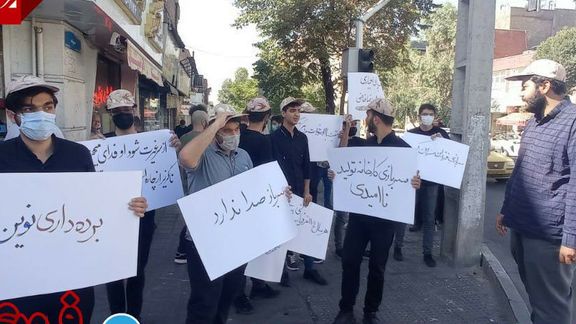
At least one person was arrested on Saturday after security forces attacked protesters to disrupt a gathering against the Islamic Republic’s compulsory military service.
A group of university students held the demonstration in front of Iran’s Public Conscription Organization in downtown Tehran.
They were holding placards bearing slogans against the mandatory service such as "Modern Slavery," "Conscripts have no voice," "Military service: a factory for manufacturing frustration," and "Two years of forced imprisonment.”
Mohammad Eskandari, the secretary of the so-called Student Justice Movement – the NGO which had organized the gathering – was arrested during the crackdown.
Many people are critical of the compulsory nature of the service and its physical and psychological pressures on the conscripts, which in some cases lead to suicide or violent acts.
In March, a young military conscript embarked on a killing spree in one of the barracks in the southern province of Bushehr, killing four of his fellow servicemen after his request for leave was denied.
Earlier in the year, Iran canceled the buy-out scheme for compulsory military service, just one day after it was reported following widespread criticism by citizens and officials. Only wealthy families could afford to buy out their sons military service.
According to Iran’s constitution, all men over 18 years old must serve in the military for about two years, otherwise they cannot apply for a passport to leave the country. Most are drafted into the traditional Army, but some with the right connections serve with the Revolutionary Guard where conditions are much better.
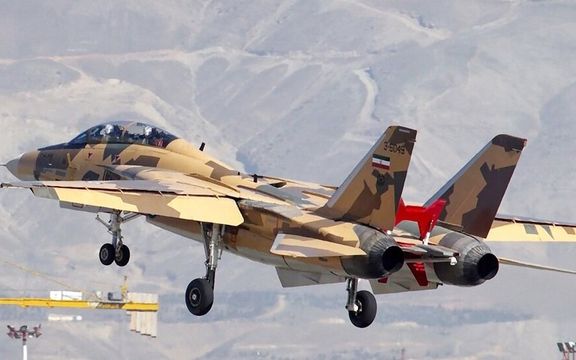
Fars news agency affiliated with Iran’s Revolutionary Guard has showcased an American article about how well Iranian pilots used the F-14 Tomcat fighters.
The article published by a US-based website 19FortyFive re-told the story that the first air-to-air kill by an F-14 was not accomplished by American pilots, but by an Iranian on September 7, 1980, one day after the long Iran-Iraq war began that lasted eight years.
Fars tells its readers that an American website has given credit to pilots of the Islamic Republic for the first air-to-air F-14 victory, one year before US pilots shot down Libyan planes in a punitive engagement. Fars said that the American publication recognized the unique abilities of Iranian pilots with the heavy American fighter designed to face Soviet bombers at long distances.
What Fars does not say is that these fighter pilots who engaged the Iraqi air force one year after the 1979 revolution and the establishment of the Islamic Republic were in fact officers recruited by the Imperial air force during the monarchy and trained by the US Air Force.
It also does not mention how Iran’s last king, Mohammad Reza Shah had been able to get 70 Grumman F-14 Tomcats, a fourth-generation sophisticated fighter, in the 1970s from the United States. In fact, it was President Richard Nixon who approved the sale to one of the most trusted US allies outside NATO at a time when the United States was losing the war in Vietnam and the power and influence of the Soviet Union was on ascendancy.
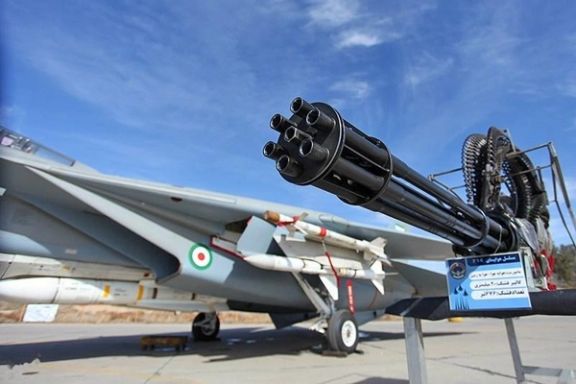
The Shah’s son, Reza Pahlavi was also sent to the United States to be trained on the F-14 right before revolution broke out. He currently lives near Washington DC and is an influential political figure for many Iranians opposed to the Islamic Republic.
“On September 7, 1980, five Mil Mi-25 (export model of the Soviet Mi-24) attack helicopters in Iraq’s Army Air Corps penetrated Iranian airspace and attacked a few border posts. In response, two F-14 Tomcat pilots intervened in an attempt to take out the aircraft,” the article in 19FortyFive says.
Citing another source, The Aviation Geek, the article explains that the Tomcat pilot failed to hit the MI-25 helicopters with his AIM9P Sidewinder missiles, but “Selecting ‘GUN’ on his control column, he put the gunsight pipper over the rearmost Mi-25 and opened fire. The aircraft’s M61A1 Vulcan gun gull spewed out 400 rounds. Many found their mark and the Iraqi attack helicopter exploded in a brilliant ball of fire.”
There are still around 40 F-14s in the Islamic Republic’s air force that have been somehow maintained, although periodically some have crashed. One Tomcat crashed in June and another in 2019. Some have been used for parts to maintain the others, since the United States severed relations with Iran in 1980 and imposed sanctions on export of US technology to the country.
Iran has also tried to build parts for the Tomcats and adapt homegrown Russian-model air-to-air missiles, but it there is no independent confirmation of their effectiveness.
Still, after nearly 50 years, the F-14 Tomcats are an important part of Iran’s air force, which has a hodgepodge of old Russian, Chinese and even French warplanes that Iraq sent to Iran faced with an imminent US attack.
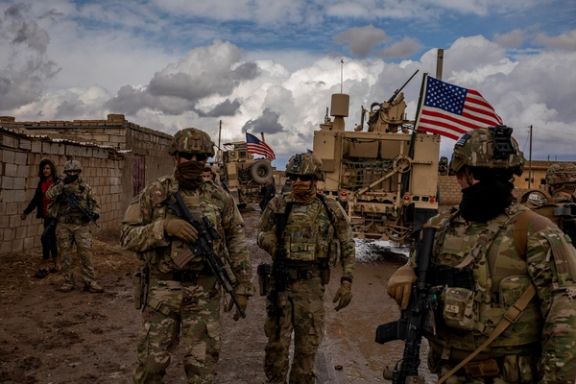
Following a series of US strikes on Iranian militia in Syria, reports say Washington has told Tehran through various channels that it does not seek to heighten tensions in Syria.
An article by the New York Times quoted a US official as saying that the Americans made clear to Iran, through private channels as well as publicly, that they were not trying to escalate hostilities but only sought to protect US interests.
US President Joe Biden told Congress on Thursday, August 25, that he ordered the strikes on the Iran-backed militia “to degrade and disrupt” attacks on US forces.
On Friday, Iran’s foreign ministry spokesman Nasser Kanaani rejected Biden’s argument that the US is responding to threats against American forces. Knaani on Wednesday had denied any links between Iran and the militia forces in Syria.
Militias backed by Iran’s Revolutionary Guards attacked a US military base in southern Syria with drones on August 15 and on the same day, a different base used by the US-led coalition near Syria’s eastern border with Iraq came under rocket fire, triggering a string of tit-for-tat attacks this week, including airstrikes on three consecutive nights against Iran-linked targets.
Senior US officials said the August 15 attacks on the two US bases in Syria could have been an Iranian attempt to avenge a previous Israeli attack, as the attack on US base at al-Tanf -- near the border in southern Syria -- came a day after Israel struck bases in the Syrian provinces of Damascus and Tartus, where Iran-backed fighters are often stationed.
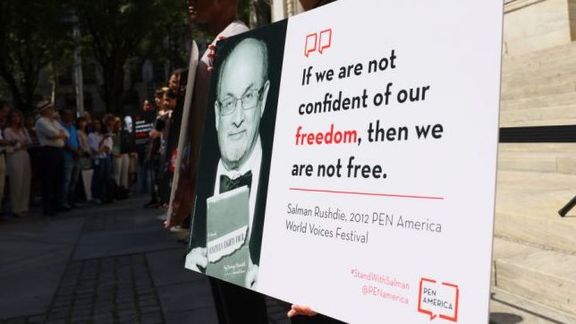
Controversial remarks by a University of Denver professor who blamed Israel's Mossad for the attack on author Salman Rushdie has prompted Republicans to probe pro-Iran propaganda in US colleges.
Lawmakers associated with the Republican Study Committee (RSC), the largest Republican caucus in Congress, are set to launch oversight investigations into schools like the University of Denver to root out "anti-Semitic and anti-American conspiracy theories."
Indiana representative Jim Banks, the RSC's chairman and a member of the House Armed Services Committee, told the Free Beacon that "Anti-Semitic and anti-American conspiracy theories are now widespread in universities and poisoning students' minds," stressing the need for oversight on professors promoting the Iranian regime's anti-Semitic propaganda and reforming the higher education.
His remarks came after Nader Hashemi, the director of the Denver University’s Center for Middle East Studies, said this week during a podcast that Rushdie’s alleged attacker, Hadi Matar, could have been persuaded to carry out the attack by Mossad agents posing as members of Iran’s Revolutionary Guards, which reportedly were in contact with Matar prior to the near-fatal stabbing.
He said a "much more likely" scenario for the attack revolves around Matar’s supposed communications "with someone online who claimed to be an Islamic Revolutionary Guard Corps (IRGC) supporter and lured him into attacking Salman Rushdie. And that so-called person online…could have been a Mossad operative."
Representative Greg Steube from Florida, a member of the RSC and the House Foreign Affairs Committee, described Hashemi’s remarks as untrue and especially dangerous to pro-Israel students on campus, saying, "Propaganda from the Iranian regime has no place on American college campuses."